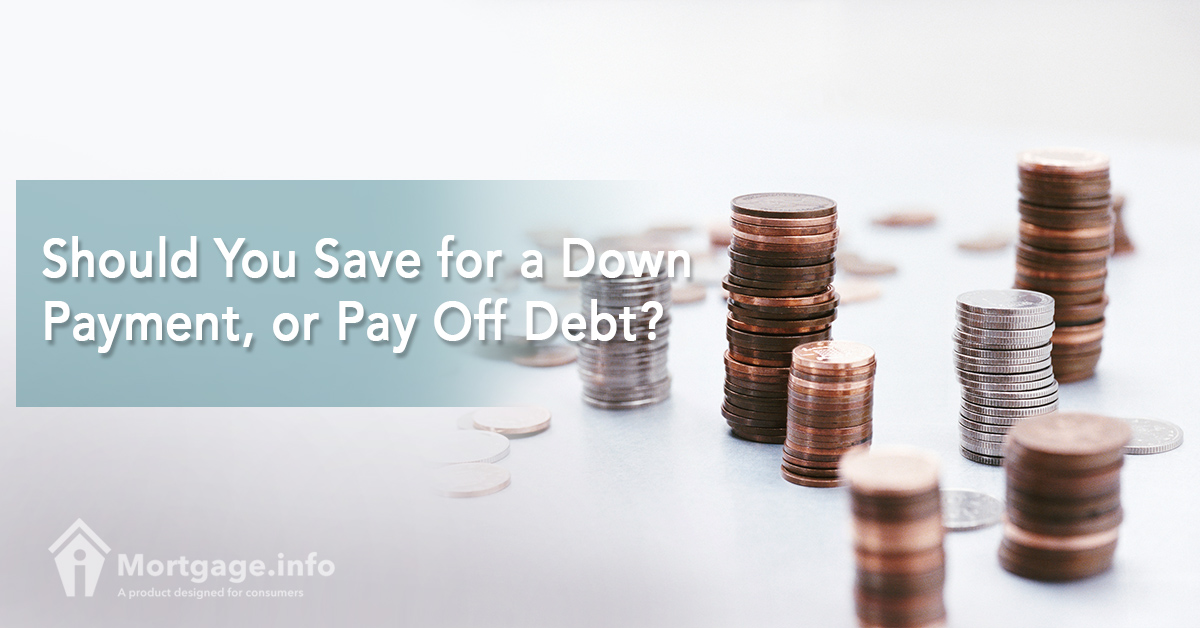
If you have a large amount of money saved up for a down payment, but you have a significant amount of outstanding debt, you might have to rethink your decision to put down the large down payment. Lenders have to look at your individual situation to determine what the right choice is for you, but here are a few scenarios to consider.
Putting Down the Larger Down Payment
Let’s say you have $20,000 saved up for a down payment. You have the option to put that $20,000 towards your new home to get the amount of your mortgage down or you have the option to pay off the credit card debt you have, which totals $15,000. If you decide to keep the credit card debt and use the money to put down on the home, you decrease your LTV, which decreases the risk level for the loan. This means the lender will likely give you a lower interest rate. This translates into a lower monthly payment and less interest over the life of the loan. This might sound like the perfect plan; however, you have to think of your debt ratio. If you have a large amount of debt, which in this case is $15,000, that adds a significant amount to your monthly obligations. Most mortgage programs do not allow you to go over a 36% debt ratio, which limits the amount of the mortgage payment you can take on, which translates into a lower mortgage amount.
Paying down the Debt
On the other hand, if you pay down the debt, you will not have a significant down payment. The good news is that most loan programs do not require a 20 percent down payment like they used to require. There are programs, like the USDA and VA program which require no down payment and even the FHA program which only requires a 3.5% down payment. In reality, you can even get a conventional loan with less than a 20 percent down payment as long as you pay private mortgage insurance. So using the above example, if you pay down your $15,000 worth of debt and use the remaining $5,000 to either pay your closing costs and minimal down payment or use the money as an emergency fund, you may be in a better position.
In this case, you do not have the monthly debt dragging you down, which means your debt ratio is lower and your mortgage payment can be higher. This could translate into a higher mortgage amount depending on your other factors. If you have good credit, a low debt ratio, and 3 months’ worth of reserves, you can still get a low-interest rate and get a higher mortgage amount, which could lead to the purchase of the home you really want.
So how do you decide which scenario is right for you? It comes down to comparing the following items:
- What is your debt ratio with the credit card debt and potential mortgage payment? Is it higher than 36%? If so, you will probably be better off paying your debt down in order to get approved for a mortgage in the first place.
- Is your debt ratio lower than 36% with the intended mortgage payment and credit card debt? If so, you might be better off putting the money you saved down on the home so that you can lower your risk (lower LTV) and receive a lower interest rate. This way you can pay less for the mortgage over the life of the loan.
As you can see, there is no cut and dry answer as to what is better option between paying off a debt or putting down a larger down payment. In most cases, the interest you pay on credit card debt and even other personal loans is higher than any interest you would make by putting the money in a savings account to save for a down payment. Generally, having less debt is the better option as you are less risky to the lender. If you are in this situation, make sure to pose both scenarios to your lender to see which offers he can give you, enabling you to make the decision that is right for your situation.
